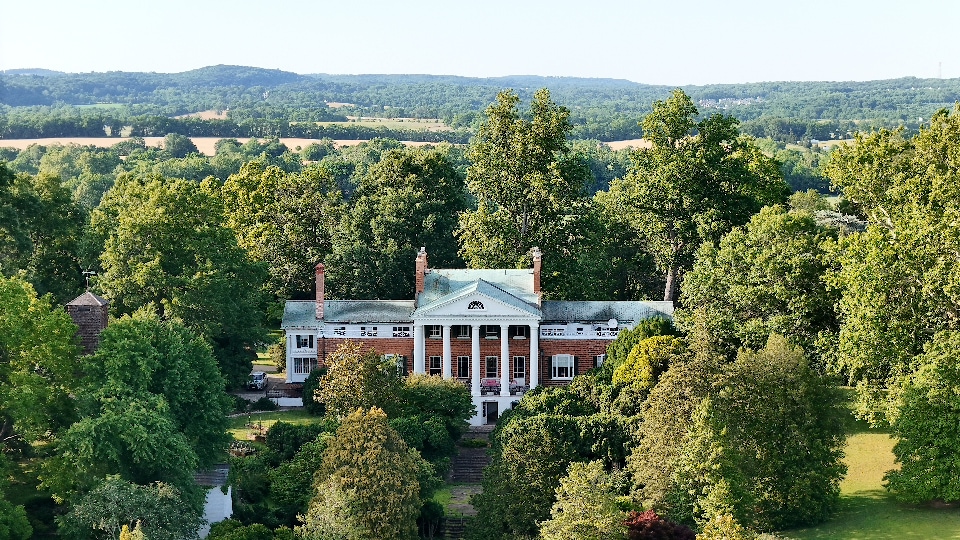The Virginia house where former President James Monroe wrote his famous doctrine sold last week for $20 million, as its new owners continue to lobby state legislators to adopt the property as a state park.
Oak Hill, a 1,200-acre estate in Loudoun County, about 40 miles from Washington, D.C., now belongs to The Conservation Fund, a nonprofit based in the region. The group has raised $30 million in local, state and federal government funds to date toward the house and land’s purchase and preservation, according to a statement it released Monday.
The property had been in the same family since 1948. The family preferred to give the historic home to the state rather than see it privately developed, the conservation group said last winter. But Virginia legislators declined to include the money to buy it in their most recent budget. The nonprofit’s purchase makes it likely the site will be preserved, though it remains unclear whether the state will be interested.
“We urge Virginia leaders to take the final step and make Oak Hill a state park during the upcoming General Assembly session, ensuring this irreplaceable estate is preserved and accessible to all Americans,” the buyer’s Mid-Atlantic regional director, Heather Richards, said in the statement.
Monroe inherited the Oak Hill land in 1808 and built his house there between 1820 and 1823, during his second term as president. He wrote the Monroe Doctrine, which stated U.S. opposition to European meddling in the Americas, at the house in 1823, according to the National Park Service. The roughly 9,000-square-foot brick house has 14 fireplaces and seven bathrooms, according to Loudoun County records.
Besides Monroe, the property also has value for the stories of indigenous and enslaved Black Americans who lived and worked there, the Conservation Fund said. The group also sees potential for hiking and equestrian activities on the land once it becomes publicly accessible.
The $30 million in grants already secured for the property’s purchase and future development include a $22 million grant by the Loudoun County Board of Supervisors, $6 million in federal funding through the Land and Water Conservation Fund, and $2 million from the Virginia Land Conservation Foundation.
The nonprofit wants to raise a total of $52 million for the project, including $22 million for the purchase price and related costs, $10 million for trails and parking at a future state park, and another $20 million for an endowment, Conservation Fund spokesman Josh Lynch told Homes.com.
The next Virginia General Assembly session begins Jan. 14.

